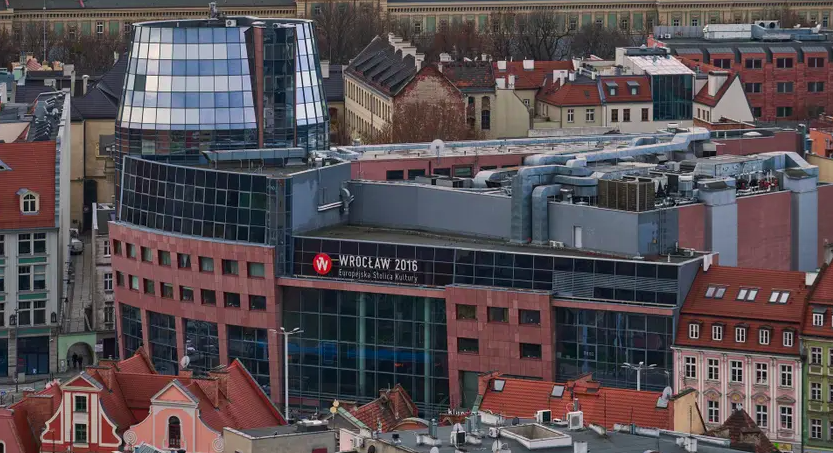McKinsey Institute: over the course of 20 years, Wroclaw has made huge progress in social development

A big plus for Poland's record revenue growth. A handful of points for creating a strong IT center. And a little more for culture. That's what Wroclaw got from analysts at McKinsey, who believe our city is an example of dynamic development and improving quality of life.
The McKinsey Global Institute has singled out three cities in Eastern Europe that have developed very strongly socially over a twenty-year period (2000 - 2020): Wroclaw (Poland), Bucharest (Romania) and Läane-Eesti (Estonia). In the introduction to the publication titled "Many paths of longevity: Three examples from Estern Europe, they present our city as one of the main ones in Poland, with a very diverse economy.
The more money, the longer life?
Analysts put forward a thesis: Wroclaw is an example of broad development. They cite data and facts:
- Gross domestic product per capita grew each year (from 2000 to 2019) by 4.6 percent - faster than in any other city in Poland;
- Wroclaw has become a major IT center, attracting companies such as Alphabet and IBM, with more than 12 percent of the total workforce working specifically in the IT industry;
- Wroclaw was the European Capital of Culture in 2016 and now hosts many cultural events and conferences.
The analysis goes on to say that in 2000, in Wroclaw, life expectancy and GDP per capita were at similar levels to the city of Ensenada, Mexico. Twenty years later, these indicators jumped to levels like the city of Providence in the US (state of Rhode Island). Over that time, according to data reported by McKinsey, life expectancy in Wroclaw extended by 4.6 years, more than in Warsaw or Krakow.
Taking the dynamic development of Wroclaw, Bucharest and Läane-Eesti as an example, analysts are trying to prove that the correlation between wealth and life expectancy is becoming stronger. This roughly means that the more money a person earns, the more likely he or she is to live longer...
We asked the staff of the McKinsey institute at the Wroclaw University of Economics to comment on the data and analysis.
Money is not everything, of course, and the region's greater prosperity is more the result of good work. Wroclaw's rapid economic growth is not an accident, but the result of conscious actions supporting social development. On the one hand, Wroclaw benefits from being in the center of economically strong Lower Silesia, firmly embedded in the Common Europe.
Boguslaw Poltorak, Ph.D., prof. of UEW
There is also the other side. Professor Poltorak emphasizes that our city is an academic and educational center that activates thousands of young people, who attract the best business partners from the world.
Higher economic activity, involvement naturally translates into a better quality of life. The data presented confirms that efforts to promote the city's openness have contributed to a leap in civilization not only expressed in numbers. In the future, it is worth ensuring that the growth is increasingly consistent and notes the social roles of all regional residents.
Boguslaw Poltorak, Ph.D., Professor at UEW
According to the professor, the means to the goal will be social and economic participation, and the key to this is open and modern education, which especially now should be paid attention to in the context of future conditions of the labor market and building the so-called competencies of the future.
McKinsey & Company in Wroclaw
McKinsey Global Institute has been operating since 1990 - as a division of the McKinsey consulting firm - providing business and economic research. The institute's mission is to help leaders in the commercial, public and social sectors better understand the development of the global economy and provide data to help make key decisions on management and policy issues.
McKinsey & Company has been present in Wroclaw for years. The company operates a client support branch in our city, which is located on Nowy Targ Square.
